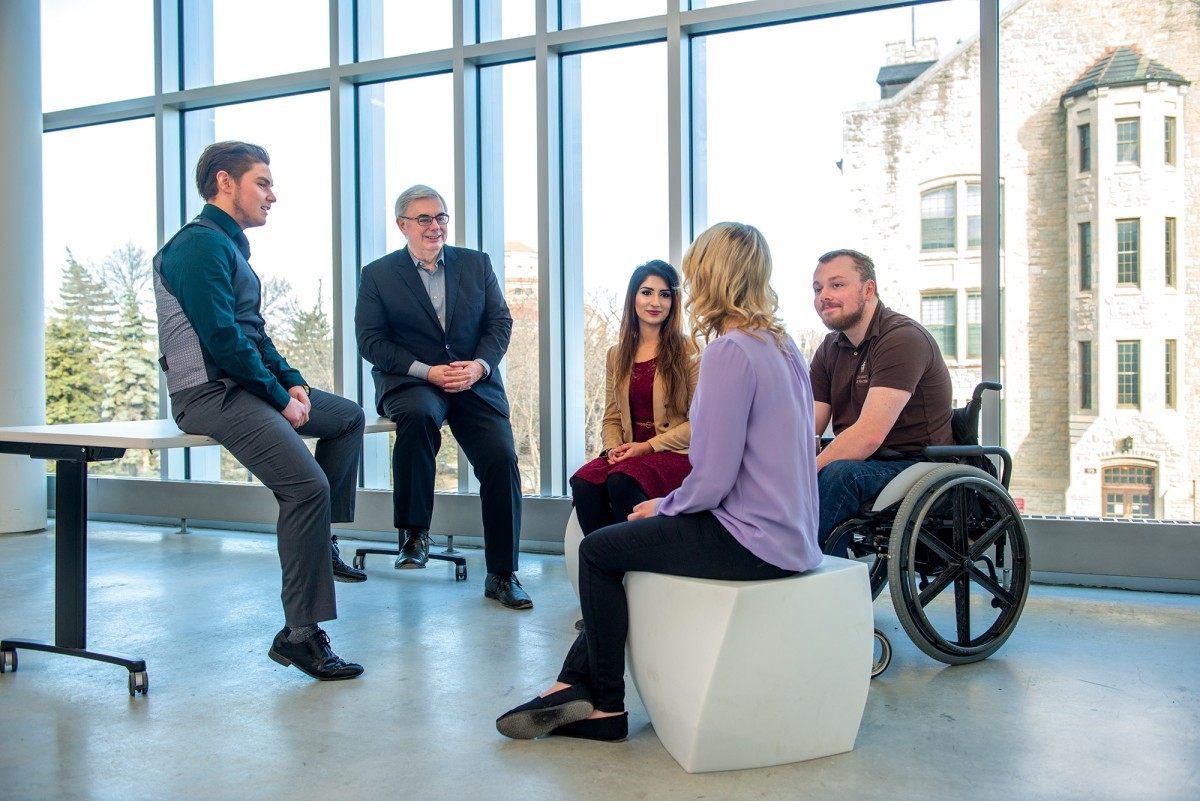
On inclusion
Spring 2016
Those of us in society fortunate enough to enjoy a measure of privilege can sometimes mistake the concept of inclusion as a favour we bestow upon those knocking at our doors. But inclusion can only be understood in its fullness if we flip the concept on its head and view it from the perspective of the excluded. From that perspective, inclusion is simply what is fair and just. Not a gift to be granted, but a wrong to be righted.
Throughout time there have been individuals courageous enough to take on the battle to set things right, when and where the pain and suffering of exclusion reached the breaking point. At the University of Manitoba, too, there is a history of men and women who have taken on the struggle to tear down barriers and to correct imbalances: to further the cause of women’s rights, to create a welcoming environment for international students, to have our campus community meaningfully reflect this land’s First Peoples. As members of an academic community, I think that not just individually but collectively we have a responsibility to seek justice in the world. Here we enjoy the privilege of academic freedom, but with that freedom also comes responsibility, the responsibility to speak out when necessary, even when what you have to say may be unpopular.
Just as universities are leaders in science, arts and culture, they should be expected to lead by example in matters of social justice. Ours is a responsibility to do the right thing when others may still not be ready. We need to be willing to build a campus community that embraces those who have been unfairly excluded, even if our stance elicits negative comments on social media or discomfort among some of our various constituencies.
My friend Ovide Mercredi [LLB/77], who is rightfully counted among those who have led the charge against social barriers in this country, has explained to me that for him inclusion for Indigenous students means something very simple: that they feel they belong here, that when they look around at the built environment, when they interact with their professors and the support staff, when they read their assigned texts, they can say, “I see myself here.” Inclusion isn’t just about opening doors.
Because often the doors shouldn’t have been erected in the first place; they were meant to keep people out. Inclusion is about making things fair, being willing to start off fresh with our neighbours, on even ground.
Last year during a brief, unplanned ceremony at a sweat lodge in Sagkeeng First Nation, I was entrusted with the gift of a new name, Standing White Bear. The name has meant much to me personally, and I also share it publicly at appropriate events to acknowledge my respect for the First Peoples of this land. But mostly I cherish the name because it has made me feel included. Welcome. So that I can say in return: “I see myself here.”






